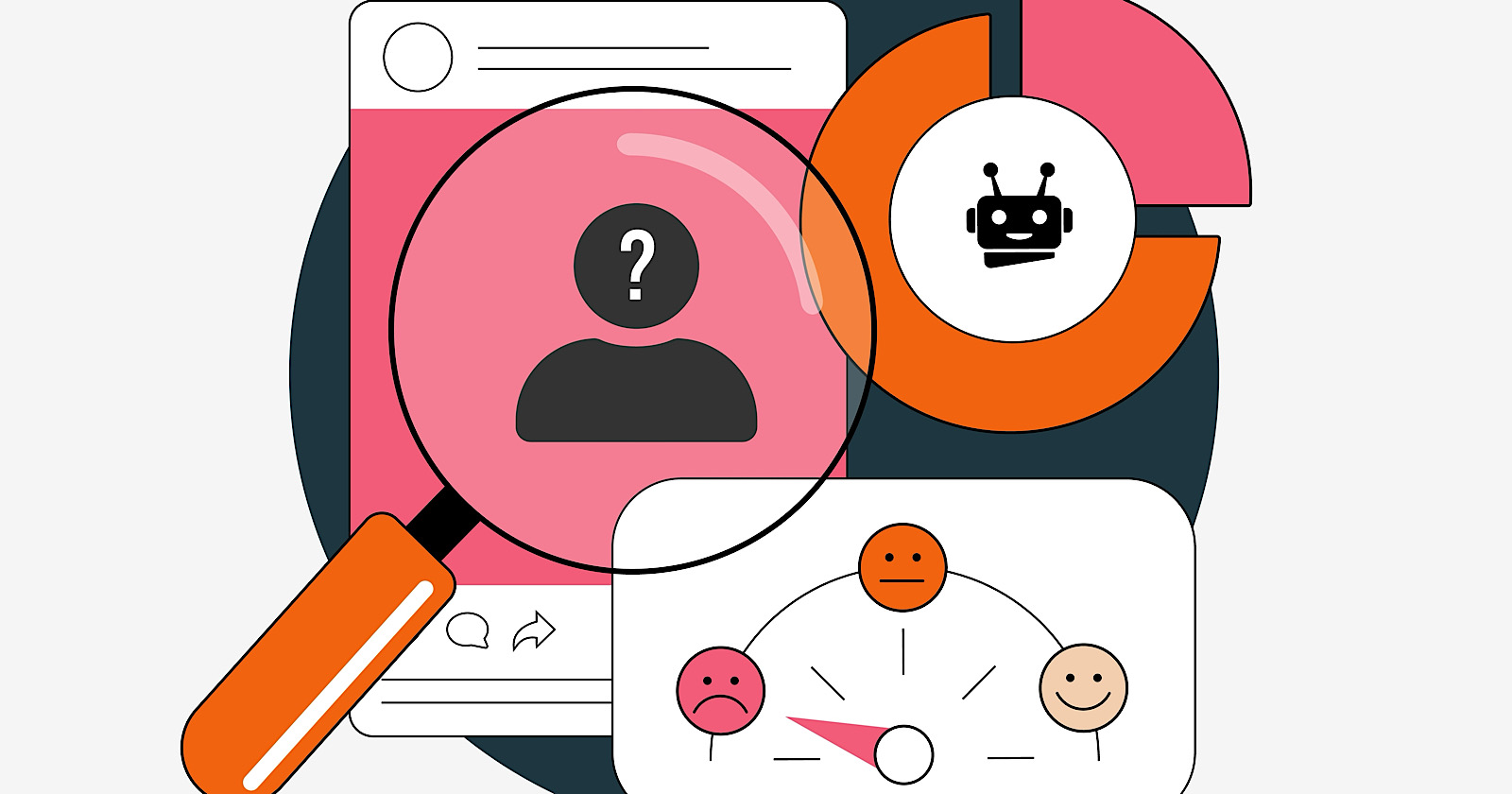Studies Reveal Consumers Easily Detect AI-Generated Content
Two new studies reveal that most consumers can easily spot AI-generated content, both images and text, which may be more than marketers expected.
The results suggest that brands should be careful when using AI in their marketing materials.
Consumers Identify AI-Generated Images
A study by digital marketing consultant Joe Youngblood found that U.S. consumers correctly spotted AI images 71.63% of the time when shown real photos side-by-side with AI versions.
The study surveyed over 4,000 Americans of different ages.
Youngblood states:
“When asking them to determine which photo was real and which one was AI, over 70% of consumers on average could correctly select the AI generated image,”
Detection rates varied by type of image:
- Celebrity images (Scarlett Johansson as Black Widow): 88.78% identified correctly
- Natural landscapes (Italian countryside): 88.46% identified correctly
- Animal photos (baby peacock): 87.97% identified correctly
- Space images (Jupiter): 83.58% identified correctly
However, some images were more challenging to detect. Only 18.05% correctly spotted an AI version of the Eiffel Tower, and 50.89% identified an AI-created painting of George Washington.
Similar Skepticism Toward AI-Written Content
A separate report by Hookline& surveyed 1,000 Americans about AI-written content.
Key findings include:
- 82.1% of respondents can spot AI-written content at least some of the time.
- Among those aged 22–34, the rate rises to 88.4%.
- Only 11.6% of young people said they never notice AI content.
Christopher Walsh Sinka, CEO of Hookline&, stated:
“Writers and brands aren’t sneaking AI-generated content past readers.”
Reputational Risks for Brands and Writers
Both studies point to the risks of using AI in content.
From the image study, Youngblood warned,
“If consumers determine that AI images are poor quality or a bad fit they may hold that against your brand/product/services.”
The content study showed:
- 50.1% of respondents would think less of writers who use AI.
- 40.4% would view brands more negatively if they used AI-generated content.
- Only 10.1% would view the brands more favorably.
Older consumers (ages 45–65) were the most critical. Nearly 30% said they did not like AI-written content.
Acceptable Use Cases for AI
Despite the caution, both studies indicate that some uses of AI are acceptable to consumers.
The content report found that many respondents approved of using AI for:
- Brainstorming ideas (53.7%)
- Conducting research (55.8%)
- Editing content (50.8%)
- Data analysis (50.1%)
In the image study, Youngblood noted that consumers might accept AI for fun and informal uses such as memes, video game sprites, cartoons, and diagrams.
However, for important decisions, they prefer real images.
What This Means
These studies offer guidance for those considering incorporating AI-generated content in marketing material:
- Be Transparent: Since many consumers can spot AI-generated content, honesty about its use may help maintain trust.
- Focus on Quality: Both studies suggest that genuine, professionally produced content is seen as more reliable.
- Use AI Wisely: Save AI for tasks like research and editing, but let people handle creative decisions.
- Know Your Audience: Younger consumers may be more accepting of AI than older groups. Tailor your strategy accordingly.
Future marketing campaigns should consider how well consumers can detect AI content and adjust their strategies to maintain trust and credibility.




